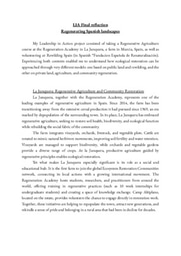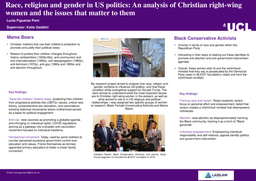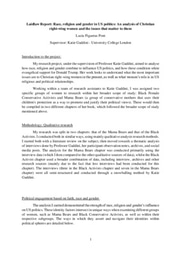La España vaciada and Barcelona embody two very different, yet connected challenges. In rural Spain, depopulation, an aging population, and the loss of schools, shops, and traditions threaten daily life. Barcelona, on the other hand, struggles with the opposite problem: overcrowding, rising housing costs, and the constant pressures of growth. One region is defined by absence, the other by excess, but both reflect the same imbalance in how people and resources are distributed.
At La Junquera in Murcia, regenerative agriculture shows how ecological renewal can go hand in hand with social revival. The farm shifted away from conventional cereal production and now focuses on restoring soil, biodiversity, and water cycles. Just as important has been the creation of a vibrant social space through the Regeneration Academy and Camp Altiplano, which bring together students, researchers, and volunteers from across the world. What was once an isolated landscape and depopulated town is becoming a place where land and community are both being regenerated.
In the Iberian Highlands, rewilding illustrates this same dual approach on a larger scale. This is one of the most sparsely populated areas of Spain, where essential services like bus lines were under threat of disappearing (during the time I was there, the government was planning on cutting down the only bus line that stops in these villages, making a direct Madrid-Teruel express instead). Rewilding Spain works here to bring back natural processes by reintroducing grazers, scavengers, and predators. But the impact is not only ecological: new jobs have been created and locals are beginning to take renewed pride in their landscapes. Conservation becomes a way of keeping cultural and social life alive, as much as restoring ecosystems.
Together, these examples underline an important point: ecological restoration and social regeneration cannot be separated. Whether in the rural highlands or in Barcelona, renewal depends on addressing both sides at once, reviving land and community together so that balance can be restored.



Please sign in
If you are a registered user on Laidlaw Scholars Network, please sign in